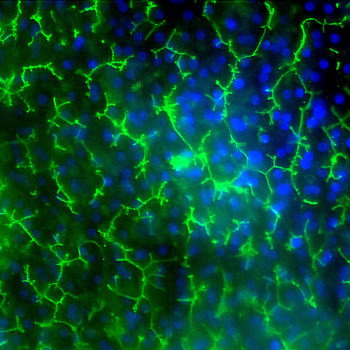Project
Feasibility study to assess the use of organ-on-a-chip technology for optimization of radiotherapy cancer treatment.
| Primary Investigator: | Prof Giuseppe Schettino University of Surrey |
| Co-investigators: | Dr Eirini Velliou University of Surrey |
| Dr Priyanka Gupta University of Surrey | |
| Dr Miriam Barry National Physical Laboratory (NPL) | |
| Ms Chiara De Lucia University of Surrey / NPL | |
| Funder: | The Organ-on-a-Chip Technologies Network |
| Project dates: | 01-04-2021 to 29-07-2021 |
| Centre dates: | 14-06-2021 to 29-06-2021 |
Radiotherapy is one of the most cost-effective cancer treatments adopted (alone or in combination) for over 50% of all cancer patients and responsible for 40% of the patients cured (NHS England). Recent technological advances have resulted in a wide range of radiation modalities (Stereotactic, Proton therapy, MR-Linacs, FLASH) which cause different effects on tumour and normal tissues for the same radiation dose delivered. There is therefore a need to improve our knowledge of radiation effects on tissues in order to be able to more accurately predict radiotherapy treatments and transit from dose-based standard treatments to biologically optimized personalised treatments.
Radiation interacts with cells at the cellular and molecular levels causing a range of bio-chemical modifications that ultimately result in the biological effects on tissues or whole organisms. Radiobiological studies are difficult because of the complexity and the multiscale of the biological response to radiations and the lack of reliable models able to mimic the whole molecular phenomenon whilst taking into account the interaction between the various cell networks, from the cell activation to the macroscopic effect at the tissue level.
Organ-on-chip technology represents an ideal system closely mimicking the functionality of tissue/organs whilst proving a relatively easy and reproducible method to assess both cellular damage and tissue response in a highly controlled environment. This project aims to investigate the feasibility of using organ-on-chips for quantifying the biological effectiveness of clinically relevant radiotherapy scenarios. Expertise and data collected will be used to support an MRC proposal on FLASH radiotherapy where the organ-on-chip will be used for the biological WP to assess and quantify the sparing effect of high dose rate irradiation, providing indication for the clinical trials. The project will also initiate a collaboration between UoS, NPL and the QM+Emulate Centre.



